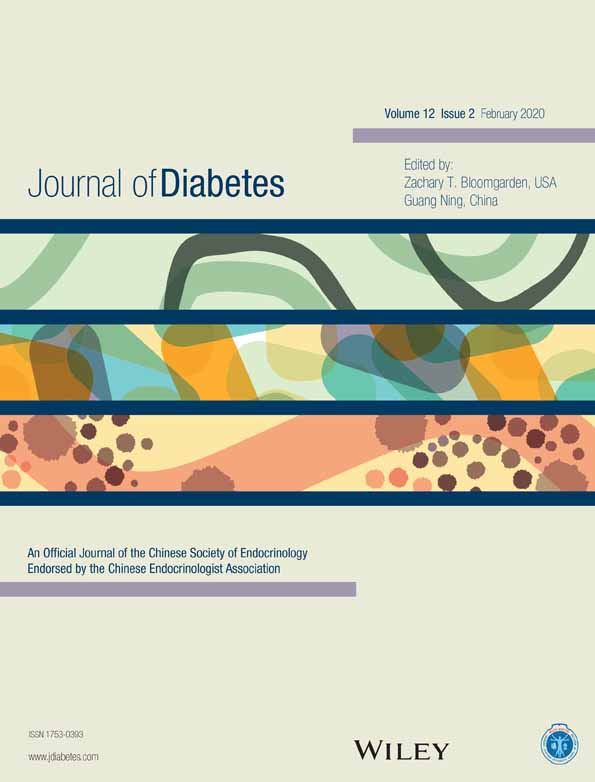Synergistic effects of depression and obesity on type 2 diabetes incidence in Chinese adults
中国成人抑郁和肥胖交互作用对2型糖尿病的影响
Abstract
enBackground
Cross-sectional studies have supported the association among depression, obesity, and type 2 diabetes, but the causality remains controversial in Chinese adults. In this longitudinal study, we evaluated the synergistic effect of depression and obesity on the risk of type 2 diabetes.
Methods
This study included 2809 participants randomly selected from the Qingdao Diabetes Prevention Program, and their type 2 diabetes incidence was determined over a follow-up period of 3 years. The WHO 2006 criteria and the Zung Self-Rating Depression Scale score were employed to identify type 2 diabetes and depression at baseline, respectively. Multivariable-adjusted logistic regression was used to evaluate the synergistic effects of depression and obesity indicators on type 2 diabetes, with adjustment for age, sex, family history of diabetes, and other potential risk factors.
Results
During 3-year follow-up, 316 new incident cases were identified. The relative risk and 95% confidence interval of depression for diabetes incidence was 1.52 (1.05-2.21), after controlling for potential confounders. Sensitivity analysis showed that depression was significantly associated with diabetes incidence in women, younger people, and obese people (1.82 [1.14-2.92], 1.94 [1.25-3.02], and 4.29 [1.44-12.78], respectively]. The synergistic effects of positive depression and body mass index ≥30 kg/m2 on type 2 diabetes incidence were observed, with a synergy index of 5.49 (1.75-17.19).
Conclusions
Depression was associated with a 52% increased risk of type 2 diabetes incidence and exerts synergistic effects with obesity on diabetes incidence in Chinese adults. Early identification and intervention for depression and obesity can reduce the risk of diabetes.
摘要
zh背景
横断面研究证实抑郁、肥胖和糖尿病的相关性, 而它们之间的因果关系在中国人群中还未确定。在这项纵向性研究, 我们评估了抑郁和肥胖的交互作用对糖尿病发生风险的影响。
方法
本研究纳入了青岛糖尿病预防项目的2809名随机调查者, 随访时间为3年, 并统计糖尿病的发生率。根据2006年世界卫生组织糖尿病诊断标准和Zung氏抑郁自评量表, 分别判定调查者基线的糖尿病和抑郁情况。借助多因素校正logistic回归模型评估抑郁和肥胖交互作用对糖尿病发病的影响, 校正因素包括年龄、性别、糖尿病家族史和其它潜在危险因素。
结果
3年随访期间发现316名新诊糖尿病患者。校正可能的混杂因素后, 抑郁阳性者发生糖尿病的相对风险为1.52(1.05–2.21)。敏感性分析显示, 抑郁与糖尿病发病的相关性在女性、年轻人以及肥胖人群中有显著统计学意义, 相对风险分别为1.82(1.14–2.92)、1.94(1.25–3.02)和4.29(1.44–12.78)。抑郁阳性和体重指数≥ 30 kg/m2交互作用增加2型糖尿病的风险, 交互作用指数为5.49(1.75–17.19)。
结论
抑郁能够增加52%糖尿病的风险, 而且抑郁和肥胖的交互作用增加中国成年人糖尿病的发生风险。抑郁和肥胖的早期发现和干预能够降低糖尿病风险。
CONFLICT OF INTEREST
None declared.




